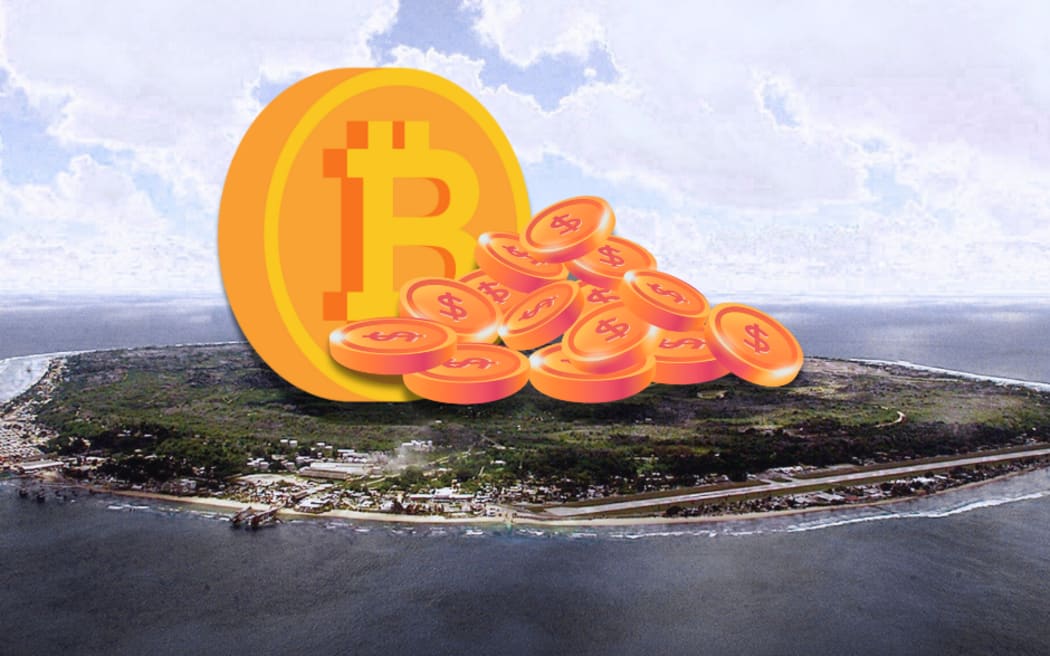World
Nauru Aims to Become Cryptocurrency Hub for the Pacific Region

Nauru is embarking on an ambitious initiative to transform its economy by establishing itself as a cryptocurrency powerhouse in the Pacific. The newly formed Command Ridge Virtual Asset Authority (CRVAA) has launched a licensing and regulatory framework aimed at facilitating digital asset transfers, including cryptocurrency lending and exchanges. This positions Nauru as the first nation in Oceania to implement regulations for digital finance.
Brian Phelps, the chief executive of the CRVAA, expressed optimism that this development could significantly boost Nauru’s economy and potentially influence the wider Pacific region. “Nauru is a vulnerable country economically, and the whole idea of setting this up is to think innovatively about how to resolve some of those concerns and build a better economic future,” he told RNZ Pacific.
If Nauru can establish itself as a reliable regulator, it could pave the way for digital financial transactions across the Pacific. Phelps highlighted the potential for Nauru to become a key player in remittance services, stating, “A safe, secure means of doing that now is through things like a stablecoin.” He pointed out that traditional remittance systems are facing increasing risks, citing an audit of Western Union by Australia’s financial crime enforcer, AUSTRAC, which flagged deficiencies in its anti-money laundering practices.
The rise of cryptocurrencies has generally placed them in a legal grey area in many countries. While some governments are starting to establish legislative frameworks to regulate these digital assets, the approach varies significantly. For instance, the United States has introduced the GENUIS Act, which mandates that stablecoins must be pegged 1:1 to the US Dollar, thereby enhancing their stability. In contrast, countries like China have imposed strict limitations on cryptocurrency use by individuals.
Phelps noted that Pacific Islands are embracing the rise of cryptocurrencies. In Palau, for example, officials are developing a digital residency program and a stablecoin initiative. Other nations like Fiji and Vanuatu are exploring opportunities related to central bank digital currencies. According to Phelps, the Pacific region is becoming a testing ground for various cryptocurrency applications. A notable example is an Oxfam project that utilizes blockchain technology for humanitarian aid, which has already benefited over 35,000 people in the region.
Despite the enthusiasm surrounding cryptocurrencies, caution remains prevalent among central banks. While political leaders like Sitiveni Rabuka, the Prime Minister of Fiji, have advocated for the adoption of cryptocurrencies, central banking authorities often express reservations. The late Lord Fusitu’a of Tonga had aspirations to make Bitcoin legal tender, but those ambitions did not come to fruition before his passing in February 2024.
For Tuvalu, the situation is even more pressing due to existential threats posed by climate change. In 2021, Tuvalu was in the process of developing a “national digital ledger” linked to a blockchain, a plan that remains under consideration.
As Nauru positions itself at the forefront of cryptocurrency regulation in the Pacific, the implications for its economy and the region’s financial landscape are significant. If successful, this initiative could serve as a model for other nations looking to navigate the complexities of digital finance.
-

 World5 months ago
World5 months agoTest Your Knowledge: Take the Herald’s Afternoon Quiz Today
-

 Sports5 months ago
Sports5 months agoPM Faces Backlash from Fans During Netball Trophy Ceremony
-

 Top Stories3 weeks ago
Top Stories3 weeks agoTongan Star Eli Katoa Shares Recovery Update After Surgery
-

 Lifestyle5 months ago
Lifestyle5 months agoDunedin Designers Win Top Award at Hokonui Fashion Event
-

 Entertainment5 months ago
Entertainment5 months agoExperience the Excitement of ‘Chief of War’ in Oʻahu
-

 Sports5 months ago
Sports5 months agoLiam Lawson Launches New Era for Racing Bulls with Strong Start
-

 World5 months ago
World5 months agoCoalition Forms to Preserve Māori Wards in Hawke’s Bay
-

 Health5 months ago
Health5 months agoWalking Faster Offers Major Health Benefits for Older Adults
-

 Lifestyle5 months ago
Lifestyle5 months agoDisney Fan Reveals Dress Code Tips for Park Visitors
-

 Politics5 months ago
Politics5 months agoScots Rally with Humor and Music to Protest Trump’s Visit
-

 Top Stories5 months ago
Top Stories5 months agoUK and India Finalize Trade Deal to Boost Economic Ties
-

 Health3 months ago
Health3 months agoRadio Host Jay-Jay Feeney’s Partner Secures Visa to Stay in NZ









